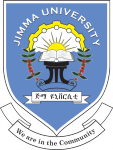An Analysis of Lightning-Related Damages and Deaths, 2014, University of Peradeniya
This reports highlights the findings from a research project conducted by University of Peradeniya, Sri Lanka in response to the ‘Preparedness and Resilience Research’ small grants program (Phase I) implemented by Response 2 Resilience Institute and the Global Disaster Preparedness Center. Abstract: Every year, lightning kills about 50 people and causes property damage estimated at over a few […]
An Analysis of Lightning-Related Damages and Deaths, 2014, University of Peradeniya Read More »



